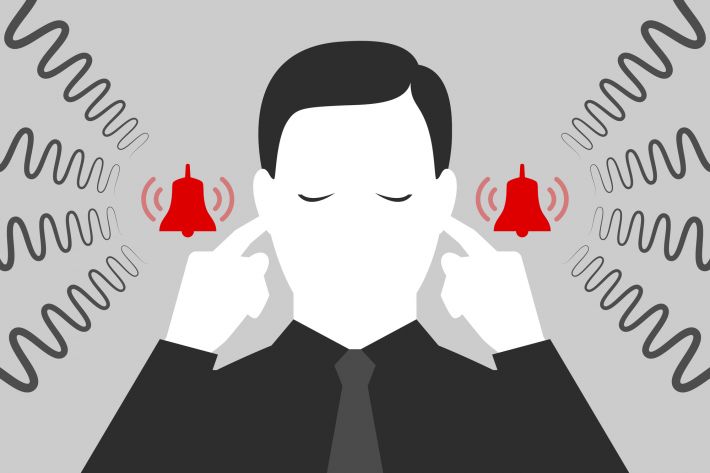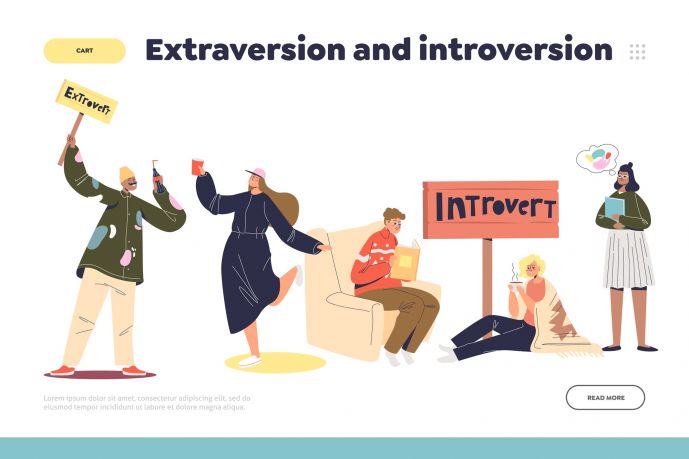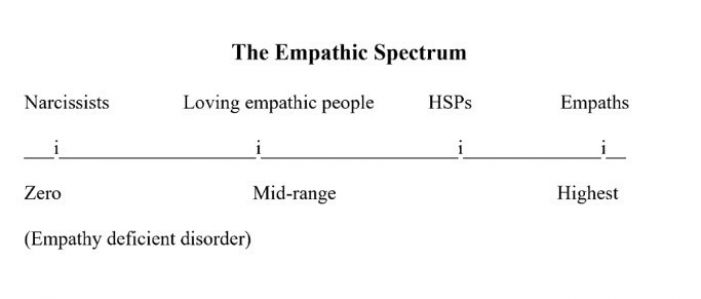- in Health and Wellness by Tony
- |
- 2 comments
Over-Sensitivity

Oversensitivity is a personality trait in which the comments and interactions experienced in contact with others are felt with an excessive, usually a negative, force.
Sensitivity reflects a spectrum from low to high, which means that all people are sensitive, but some are more and some less. According to several studies, people can be categorised into three sensitivity groups:
More...
- Low
- Medium
- High.
Roughly 20% of the general population fall within the highly sensitive classification.
Sensitive Person
Oversensitive is not the best term because it is a judgement that implies that your level of sensitivity is too much or not acceptable.
Sensitivity is not the same as being shy. Sensitive people are not necessarily fearful but are often more cautious, and their observing approach to new situations may sometimes come across as “shyness”.
The American psychologist Elaine Aron in the mid-1990s, coined the phrase Highly Sensitive Person (HSP), or Sensory Processing Sensitivity (SPS), with her series of successful books on this topic.

Oversensitive people are often quick to take offence and easily suffer disturbed feelings, sometimes amounting to severe emotional discomfort, which seriously limits social contact.
Sufferers constantly experience the embarrassment, humiliation or insult which everyone meets at times. Long-term personality problems may result, with the worry that others are being intentionally hurtful.
The Highly Sensitive Person is especially susceptible to the emotions of others. However, we know that sensitivity is associated with the common personality trait of Neuroticism (the tendency to experience the world as distressing, threatening, and unsafe) which has been found to predispose people for the development of psychiatric problems.
What causes over-sensitivity?
You could be an oversensitive person without even realising it.
A Highly Sensitive Person feels and experiences the world on a deeper level than most people.
This kind of person may hear sounds louder, feel sad quickly, or empathise more than most people.
Nevertheless, most people are oversensitive at times, which often depends on their state of health and the predisposition of their personality.

Because a Highly Sensitive Person (HSP's) react sensitively to stimuli, they often become exhausted from the sensory overload. If a highly sensitive person goes to a concert with ultra-bright flashing lights and booming music, they may need to take breaks to get away from the stimuli for a while.
Similarly, a highly sensitive person is likely to get overwhelmed at malls. A day full of shopping includes screaming children, lots of things to look at, and people bumping into you, not to mention all the emotions swirling around. For a sensitive person, that’s the essence of stimuli overload.

The following are common causes of Over-Sensitivity
Childhood trauma is the leading contributor to emotional oversensitivity.
Sadly, an all too common form of childhood trauma is sexual abuse. And many forms of sexual abuse go overlooked.

Many individuals become temporarily over-sensitive when they are physically ill. They often feel fragile, low, and unable to cope generally with the situations of everyday life.

Based on the diathesis-stress model of psychopathology in which the environmental exposure and their inherent capacity for vulnerability have been postulated.
Stress can often cause over-sensitivity. It may be that life is so busy that a person cannot cope with everything. The usual emotional defences protect us against getting hurt, thereby becoming overloaded, suddenly, you are irritable, and the slightest comment or action become hurtful.
Then, a quick temper or tearfulness may result if someone says something that is interpreted as a criticism.

Borderline personality disorder also makes you very oversensitive emotionally. So you might find yourself overreacting to films, and things you read or see and become very enraged about animal rights or protecting nature.
Women often become over-sensitive if they suffer from PMS (premenstrual syndrome). This is thought to be due to fluctuating hormone levels, affecting the emotions, increasing sensitivity from innocent or harmless comments.

Pregnancy can also cause over-sensitivity, again due to hormonal imbalance. Many pregnant women are prone to mood swings, extreme reactions to minor events and crying bouts.

Depression can be both a cause and a result of over-sensitivity. Depressed people are often unhappy with themselves and their own lives and may react strongly to remarks and comments.
Two other vital factors are general attitude and self-image. Those who suffer from a lack of confidence or low self-esteem are often over-sensitive. They are shy, nervous, afraid of being laughed at and worry that others think about them poorly. They often feel inferior to others and apologise for themselves constantly.

Attention deficit hyperactivity disorder (ADHD) causes impulsiveness, which can include emotional impulsivity.
Glossary:
Emotional impulsivity (EI): Impulsivity is broadly defined in the DSM-V as actions that are poorly conceived, prematurely expressed, unnecessarily risky, and inappropriate to the situation. EI specifically was defined by Barkley in 2015 as difficulties with emotion generation that is highly impulsive.
Deficient emotional self-regulation: Defined by Barkley in 2015 as difficulties with the self-regulatory functions that effectively manage emotional experience to rein in behaviour from accelerating to problematic degrees.
What is impulsivity?
In psychology, impulsivity refers to a personality trait that leaves you prone to acting on your impulses over thinking things through and considering the consequences.
This means you have a tendency to make rash decisions, say things you wish you hadn’t, and indulge in risky behaviours.

- Constant feeling of being taken advantage of.
- Inferring insults from the slightest comment.
- Reacting harshly to others with anger, counter-insult or sarcasm.
- Becoming frequently tearful and apologetic.
What are the effects of over-sensitivity?
Long-term over-sensitivity can lead to intermittent tearfulness, tension, nervousness, and social anxiety because they get overwhelmed when they have too much “people time.” and overthinking.
Sufferers may fear being observed by others or worry that others may be talking about them behind their backs. They may be over-sensitive to innocent comments or questions and become withdrawn. These types of thoughts are called “cognitive distortions” in psychology – a term that means that the way you are thinking about something doesn’t necessarily match up with the reality of what’s going on.
Sensitivity and anxiety tend to go hand in hand, and more seriously, over-sensitivity can develop into depression, mainly if there are constantly worrying about what others think.
It can also lead to serious problems within families or at work. If someone constantly bursts into tears or takes comments too seriously, others may become unwilling to talk to them. This can lead to social difficulty, making it hard to be relaxed and friendly when meeting new people, or preventing relationships and friendships from developing.
What is the difference between empaths, highly sensitive people, and introverts?

The word “empath” has been taking on a different meaning lately. At one point, it was primarily used in science fiction to describe a person with paranormal abilities to understand the mental and emotional states of others.
Now it’s commonly used to mean "someone who is exceptionally aware of the emotions of those around them". Many empaths are likely compassionate people. However, empaths take the experience of the highly sensitive person much further.
If you’re a highly sensitive person (HSP), you’re much more likely to be an introvert than an extrovert. Elaine Aron has estimated that about 70 per cent of Highly Sensitive Person (HSP's) are also introverts — so it makes sense why they’re often confused for one another.
A Highly Sensitive Person may have strong reactions and can actually empathise with another’s pain to the point of feeling it themselves. At the same time, an Empath knows what someone feels even if they display no noticeable body language. This is where science, psychology, and the supernatural part ways.
However, empaths take the experience of the highly sensitive person much further. Sensing subtle energy, called shakti or prana in Eastern healing traditions, and absorb it from other people and different environments into our bodies.

Nobody is ‘just’ an introvert or extrovert
We are all more complicated than that. Jung, who was the one who created the modern concepts of introvert and extrovert in the first place, he then came up with eight personality types, four introvert and four extroverts. The Myers Briggs test, often used in workplaces, is based on Jung’s discoveries.
How can over-sensitivity be resolved?

It is important to remember that being an HSP does not mean that you have a diagnosable condition. It is a personality trait that involves increased responsiveness to both positive and negative influences.
Dealing with over-sensitivity depends on the underlying cause and ranges from medicinal treatments such as antidepressants to therapeutic counselling and self-help.
There are plenty of ways to learn to cope with your sensitivities and focus on the positives of being oversensitive. The important thing is for you to discover ones that work for you. You may not be sensitive to smells but may easily pick up on others’ individuals emotions and assume they are your own.
Because certain smells or textures can heighten their reactions you may not be able to internalise other people’s feelings as much as you can’t stand to be around loud, repetitive music or wear synthetic fabrics could leave you feeling overwhelmed.
Where stress is a factor, relaxation techniques may bring substantial benefits. These might include special breathing exercises, yoga or meditation. Taking up regular exercise will also help to improve health, getting a feeling of both physical and emotional well-being.
Counselling or psychotherapy may prove effective.
These can help sufferers confront the underlying cause of their over-sensitivity, such as a lack of confidence or low self-esteem. They can then help sufferers strengthen their self-image and understand that the problems are not caused by other people but by a false sense of inferiority and unworthiness.
Most importantly, sufferers can learn to accept and feel good about themselves.
Family therapy may be necessary if the condition has caused tension and difficulty at home or with relatives. It can enable the family to understand the problem and why the sufferer reacts in a certain way. It can also teach ways of coping with challenging behaviour and communicating more effectively.
A self-help group for people who are shy, nervous or anxious may prove helpful. Coping with over-sensitivity can be difficult, as feelings of isolation, loneliness and being misunderstood are common.
A better approach is to take it day by day. Learn about yourself and expand your sense of self-awareness as you view the daily challenges as learning opportunities rather than struggles. Often, talking to someone who is in the same situation can help dispel these feelings.
Work environment

From open space environments to team building events, work-life is seldom geared to support over-sensitivity within the workplace.
Highly sensitive people feel everything extra when they are at work. You’re dealing with people, managers, deadlines, stress, and the usual day-to-day responsibilities. Add on top of that; the fact that you’re more prone to anxiety than most – it’s a recipe for disaster sometimes.
Work drama is inevitable
We all face it, regardless of the office environment. Instead of trying to avoid it, try to meet it maturely and responsibly by deciding not to engage with it.
Highly sensitive people are known for getting overwhelmed from too much time spent with other people, and if you fall into that category, embrace it as part of who you are. They may be less likely to speak up when struggling because they fear being perceived as weak or incapable.
As a result, they may become easily overwhelmed, particularly when under pressure and deadlines may frazzle them, and get caught off guard in meetings is a common fear.
Embrace your Differences
They may feel pushed out of discussions simply because they’re not making their voice heard the loudest or because they tend to think by themselves instead of the group.
Take that walk during a break. Eat lunch in your car. Being alone and in a quiet, calming environment can help reset your overstimulated nervous system.
Over-sensitive individuals spend a lot of time working to understand their individual thoughts and feelings. They can transfer this to others and show a genuine aptitude for listening and empathy. It’s an excellent opportunity for you to exercise your self-awareness.
Recommended Resources
21 Signs You’re a Highly Sensitive Person
A highly sensitive person (HSP) experiences the world differently than others. Due to a biological difference that they’re born with, highly sensitive people are more aware of subtleties and process information deeply. This means they tend to be creative, insightful, and empathetic, but it also means they’re more prone than others to stress and overwhelm.
Although being highly sensitive is completely normal — meaning, it’s not a disease or a disorder — it’s often misunderstood, because only 15 to 20 percent of the population are HSPs.
Are you a highly sensitive person? If you relate to most of these signs, there’s a good chance you’re an HSP.
How to manage a highly sensitive person
Juliet was the type of employee every manager dreamed of. Hard-working and dedicated, she strived to excel in her role as lead project manager. Her knack for communication meant tasks were accomplished on time. Her conscientiousness nature assured that every detail was accounted for.
However, at times, Juliet struggled to cope with the stresses of her job. Last-minute changes sent her into a tailspin of overwhelming emotions that compromised her productivity and focus. Juliet also avoided giving necessary feedback to other colleagues, which often interfered with the team’s progress, because she feared push back.
Juliet is a highly sensitive person, or HSP. High sensitivity, also referred to as sensory processing sensitivity, is a genetic trait that affects approximately 20% of the population. Psychologist Elaine Aron, who coined the term in the 1990s, theorized that the trait evolved to help people with more sensitive nervous systems cope better with the world.
What Is a Highly Sensitive Person (HSP)?
A highly sensitive person (HSP) is a term for those who are thought to have an increased or deeper central nervous system sensitivity to physical, emotional, or social stimuli.1 Some refer to this as having sensory processing sensitivity, or SPS for short.
While highly sensitive people are sometimes negatively described as being “too sensitive," it is a personality trait that brings both strengths and challenges.
These terms were first coined by psychologists Elaine Aron and Arthur Aron in the mid-1990s and interest in the concept has continued to grow tremendously since then.
How Do You Know?
Have you ever been told that you’re “too sensitive” or that you “shouldn’t think so much,” particularly by people who strike you as too insensitive or who you believe should think a little more? You may be what is known as a “highly sensitive person,” or HSP.
I'm too sensitive. How can I toughen up?
The dilemma I always get told I am "too sensitive" and need to stop taking everything so seriously. On good days I'm fun and gregarious and on bad days I'm nervous and anxious, getting easily hurt by what others say and sometimes what I think they're thinking. It affects friendships and relationships (all three of my past boyfriends have cited it as a problem). It can be a good trait – I am loyal and compassionate – but the bad side is it drives me and others crazy. I can't handle criticism and take things too seriously, getting overly upset, overthinking things and cutting people out of my life. I want to be able to roll with the punches and take life lightly! I meditate and read psychology books, but I just haven't been able to shake it.
Mariella Replies Oh dear, you definitely won't be speaking to me by the end of this column! I've been accused of riding roughshod over others' emotions and I admit when I feel a friend is being over-indulgent my patience is in short supply. That's all very well when the person in question is drowning in a well of self-pity, but in cases of real depression it's taken me a long time to understand that tough love is neither constructive or kind.
What's interesting about you, and quite unusual, is that you're not claiming depression, or even mitigating circumstances for your sensitivity. It's a very good start. Normally the thin-skinned have an endless array of excuses for why their workaday interactions are so much harder to bear for them than for the rest of us. In the eyes of the self-suffering they are being victimised, used and always abused when they're actually experiencing exactly the same body blows as the rest of us.
You're already on the mend because you have a perspective on the irrationality of your responses. Often those who bruise easily spend too much time thinking about themselves. I'd go so far as to say that oversensitivity is a privilege of the under occupied. The majority of people don't have the time to lavish care on emotional wounds – they're too busy getting on with living.
The Highly Sensitive Person
Do you often feel "too sensitive", anxious or exhausted?
Would you consider yourself highly emotional, intuitive or easily overwhelmed?
Perhaps you are introverted or need lots of alone time?
If so, you may be a Highly Sensitive Person (HSP), a genetic trait found in 15-20% of the population. Being Highly Sensitive creates an advantage of being able to live, love and feel deeply, but can often lead to feeling overstimulated and misunderstood.
What is the HSP Trait?
According to research by Elaine Aron, High Sensitivity, or Sensory Processing Sensitivity (SPS), is an innate trait equally dispersed among all gender identities. It is a variation that allows the nervous system and brain to process subtleties and details that most miss. This once lifesaving evolutionary tool has become an overstimulating burden in the modern world where there are high amounts of stimuli to process at all times.
How do I know if I am a Highly Sensitive Person (HSP)?
High Sensitivity can manifest in many ways, but generally shows up as the following four characteristics (D.O.E.S) that are present across the lifespan:
D - Depth of Processing
The Highly Sensitive brain has a more active insula, the part of the brain that helps enhance perception and increase self-awareness. HSPs are also wired to pause and reflect before engaging. Therefore, HSPs are always taking in a lot of information around them and thinking deeply about it. This may result in slower decision making and more transition time between tasks.
O - Overstimulation
Since HSPs notice more subtle details in their environments and are more emotionally impacted by social stimulation, it makes sense that they are more likely to get overstimulated and exhausted by high levels of input.
E - Emotional Responsiveness/Empathy
Brain scans have shown that HSPs have more active mirror neurons which are responsible for feelings of empathy for others and more activity in areas that are involved with emotional responses. HSPs feel both positive and negative emotions more intensely than non-HSPs.
S - Sensitive to Subtleties/Sensory Stimuli
HSPs notice subtle details that others miss such as non-verbal cues and small changes in their environment. They are also more impacted by strong sensory input such as bright lights, loud noises, strong smells or rough textures.
Common HSP Challenges
Many of the struggles of being Highly Sensitive are due to being overstimulated and emotionally exhausted. These challenges are easily remedied with more downtime and access to regulation tools.
Easily Overwhelmed
You feel easily flustered or overwhelmed in many areas of your life. This could show up as general anxiety, chronic digestive issues, exhaustion, poor concentration or lowered immune functioning. Even pleasant experiences can be stressful such as transitioning into a new relationship or living situation.
Vantage sensitivity: individual differences in response to positive experiences
The notion that some people are more vulnerable to adversity as a function of inherent risk characteristics is widely embraced in most fields of psychology. This is reflected in the popularity of the diathesis-stress framework, which has received a vast amount of empirical support over the years. Much less effort has been directed toward the investigation of endogenous factors associated with variability in response to positive influences.
One reason for the failure to investigate individual differences in response to positive experiences as a function of endogenous factors may be the absence of adequate theoretical frameworks. According to the differential-susceptibility hypothesis, individuals generally vary in their developmental plasticity regardless of whether they are exposed to negative or positive influences--a notion derived from evolutionary reasoning.
On the basis of this now well-supported proposition, we advance herein the new concept of vantage sensitivity, reflecting variation in response to exclusively positive experiences as a function of individual endogenous characteristics. After distinguishing vantage sensitivity from theoretically related concepts of differential-susceptibility and resilience, we review some recent empirical evidence for vantage sensitivity featuring behavioural, physiological, and genetic factors as moderators of a wide range of positive experiences ranging from family environment and psychotherapy to educational intervention.
Thereafter, we discuss genetic and environmental factors contributing to individual differences in vantage sensitivity, potential mechanisms underlying vantage sensitivity, and practical implications.
24 Signs of a Highly Sensitive Person
Are you a highly sensitive person? Do you know someone in your personal or professional life who may be highly sensitive? High sensitivity can be defined as acute physical, mental, and emotional responses to external (social, environmental) or internal (intra-personal) stimuli. A highly sensitive person may be an introvert, an extrovert, or somewhere in between.
Although there are many positive aspects of being a sensitive person (such as greater ability to listen and affirm, greater empathy and intuitiveness, better understanding of others' wants and needs, etc.), in this writing we will focus on aspects of high sensitivity which adversely affect one’s health, happiness and success, and often complicate relationships. Below are 24 signs of a highly sensitive person, with excerpts from my books: "Are You Highly Sensitive? How to Gain Immunity, Peace, and Self-Mastery" and "How to Communicate Effectively with Highly Sensitive People". These traits are organized into three major categories: Sensitivity About Oneself, Sensitivity About Others, and Sensitivity About One’s Environment.
While many people may experience some of these signs from time to time, a highly sensitive person will likely “feel too much” and “feel too deep.” Some individuals may be highly sensitive to just one or two stimuli, while others may be strongly affected by more on the list.
Category One: Sensitivity About Oneself
1. Often has difficulty letting go of negative thoughts and emotions
2. Frequently feels physical symptoms (i.e. stress or headache) when something unpleasant happens during the day
3. Often has bad days that affect eating and/or sleeping habits in an unhealthy way, such as eating or sleeping too much or too little
4. Often experiences tension or anxiety
5. Tends to “beat oneself up” when falling short of own expectations
6. Is afraid of rejection, even in relatively minor situations
7. Compares self with others often (in physical, relational, social, work, financial, or other scenarios), and experiences unhappy feelings from negative social comparison
8. Often feels anger or resentment about situations in life or in society which seem unjust, aggravating, or simply annoying
Category Two: Sensitivity About Others
9. Often thinks/worries about what others are thinking
10. Tends to take things personally
11. Finds it difficult, when triggered by relatively small unpleasantness with people, to just “let it go”
Why Am I So Oversensitive?
Being oversensitive can feel a blessing and a curse.
Do you often feel like you were born with the capacity to feel things that others just can’t?
Or lack the self protective ‘skin’ others seem to naturally have?
Are you emotionally sensitive?
“Oversensitive” is perhaps not the best term because it is a judgement. It implies that your level of sensitivity is ‘too much’, or not acceptable.
Other terms are ’emotionally sensitive’ or the trendy ‘highly sensitive person’ tag.
Being emotionally sensitive can look like the following:
- if someone raises their voice you run off or cry
- sad or violent films make you cry or feel deeply upset
- you might avoid people or situations that upset you
- things like music, art, and nature move you more than others
- sensory output (noise, lights, smells) can be overwhelming
- timeouts in quiet, calm places are things you need
- You suffer intermittent depression.
Can I be diagnosed as an oversensitive person?

By: Nguyen Hung Vu
There has been quite the hype around being a ‘highly sensitive person’ in the last few years.
Are You an Empath or Highly Sensitive Person?
Science has not taken a definite stand on the issue of HSP’s, or Highly Sensitive People, though there is a great deal of information, and even a foundation, set up for HSP’s. “Some researchers believe that a recent discovery called mirror neurons might provide a neuro-science answer” (apa.org) to questions involving normal reactions to certain life situations.
For example, we see someone fall down and scrape their knee, and we automatically recoil in response to the situation. Almost like we can feel their pain, so to speak, which are your mirror neurons at work. This is the same when we see someone yawn, and we immediately follow suit.
Again, those are our mirror neurons. While these little affecters are quantifiable in science because scientists have found them in our brains, what seems to still be a mystery is how we affect atoms thus affecting the world around us.
We all have mirror neutrons, and we are all made of atoms and molecules, so that is not the definitive answer for the person who is highly sensitive, though it plays into the situation.
Researchers at the Weizmann Institute of Science discovered that beams of atoms move simply by being observed, and the more they are observed, the more they change. (Sciencedaily)












[…] of cortisol within the person. Empaths share all the traits of Dr Elaine Aron’s “Highly Sensitive People” or HSPs. Empaths are like sponges that absorb all the stress surrounding them, making […]
[…] Overly Sensitive Person (HSP) is a rare kind of individual who cannot conform to other people’s expectations. This […]